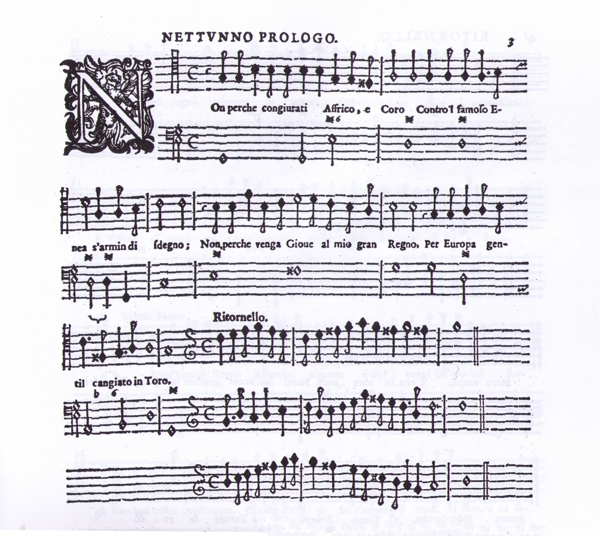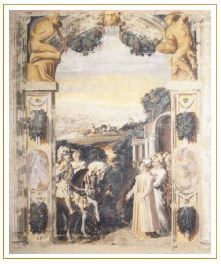Edited by Neco Verbis —
Francesca Caccini*(1587-1640), also known by the nickname, ‘La Cacchina’ or the ‘song bird’, was an eminent music composer, poet, singer and music teacher belonging to the early Baroque era. She is also believed to be the most influential female composer in Europe between 12th and 19th century. Her work ‘La liberazione di Ruggiero’ is noted for being the first opera composed by a woman. The compendium of vocal music Il, ‘primo libro delle musiche’, published in 1618, was one of the best collections of her early solo songs. Her early songs had the influence of monodic style which was developed by her father. They encompassed genres of madrigals, canzonettas and others. Her composition of vocal music was brilliantly rendered in trills and ornamentations. Her extraordinary talent in music was well recognized by other great musicians of her time. She went on to become a lead composer and highest paid musician in Medici court.
La Liberazione di Ruggiero dall’Isola d’Alcina
Balletto con prologo e tre scene, Florence, 1625
The crowning event of his visit is a performance of the “commedia in musica”: La Liberazione di Ruggiero dall’isola d’Alcina, an opera commissioned for this occasion by the grand-duchess of Tuscany, Maria Maddalena of Austria, widow of Cosimo da Medici (1590-1621). Ferdinando Saracinelli, superintendent of the Medici court is the author of the libretto of this “Balletto” (as it is called on the first page of the edition). The court composer Francesca Caccini, the first opera composer in history, wrote the music. The work so impressed the Polish Prince that it was also performed in Poland.
The wonderful score mixes penetrating recitatives with varied accompaniment, musical arias where one senses the subtle feminine touch, chorus interventions (canzonetta and madrigals) to represent court ladies, demons, enchanted trees, freed knights and sinfonias, colorful ritornelli and instrument interludes. This practically unknown opera marks in fact an important stage in Italian music of the first half of the 17th century: the Salon d’Hercule will be an ideal setting for its revival by the inspired Paul Van Nevel.
Huelgas Ensemble – Paul Van Nevel
CAST AND CREATIVE TEAM
Michaela Riener, Alcina
Sabine Lutzenberger, Melissa
Matthew Vine, Nettuno
Bernd Oliver Froehlich, Vistola Fiume / Pastore
Dorothea Jacob, Sirena
Axelle Bernage, Nunzia
Matthew Vine, Astolfo
SOURCES: CHÂTEAU DE VERSAILLES SHOWS, THE FAMOUS PEOPLE
- La liberazione di Ruggiero dall’isola d’Alcina.
- La stiava
- Ballo della Zigane
- Primo libro delle Musche
- Dove io credea
- Ghirlandetta Amorosa
- Ch’io sia fidele
1587:Born on 18 September 1587.
Made her debut as a singer.
Got married to Giovanni Battista Signorin and composed La stiava.
Collaborated with poet Michelangelo Buonarroti.
Became the highest paid musician in Medici court.
Composed Il ballo delle zigane.
Her workIl primo libro delle musiche was published.
She got married to Tommaso Raffaelli.





